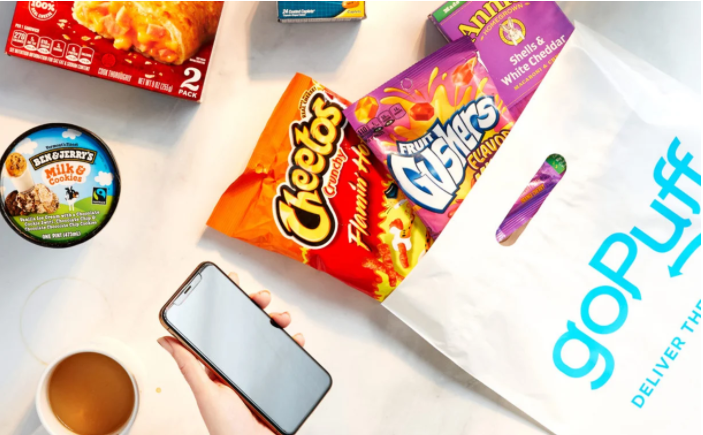Direct to Consumer and Social Media: The FMCG Opportunities
Jan 22, 2021
Industry Trends

2020 was a catalyst for change in consumer shopping habits and FMCG brands have taken note. With consumers spending more and more time online, many brands have begun bypassing retailers and are adapting their business models to sell directly to consumers. The old shopping experience of standing in massive queues and social distancing isn’t appealing to the 2021 consumer anymore. As a result of this, web-purchases have skyrocketed. Online shopping is safe, quick and easy.
There are countless opportunities out there for consumer goods brands to maximize D2C trends, and we have already seen various tactics from brands – big and small – to achieve their D2C ambitions and provide their customers with choice.
Over the course of 2020’s lockdown hokey-cokey, internet usage surged by 35%, and 72% of consumers say their social media consumption has significantly increased. Even before the pandemic hit, 54% of social media users said they would happily make a purchase through a social media platform, and this number has only increased throughout the year.
Social media platforms, specifically Instagram and TikTok, have become go-to catalogues and stores for consumers. This has resulted in the opinions of influencers becoming more important to consumers than ever before. 62% of consumers say that having a social media presence increases the likelihood of making a purchase with a brand.
So, what are the D2C strategies we’ve already seen FMCG brands put into place?
Owned E-Commerce Developments

Huge consumer brands have begun investing in their own e-commerce technologies in order to sell directly to their customers. In May 2020, PepsiCo created two online stores – PantryShop.com and Snacks.com – in under a month, in response to the change in shopping behaviours. In addition, Heinz created its ‘Heinz to Home’ UK online store in April and has since been using its Instagram to encourage customers to purchase bundles of their favourite Heinz products through this store. By completely bypassing traditional retailers, these FMCG brands are encouraging more loyal customers as existing buyers are more likely to become repeat customers.
View this post on Instagram
According to Unilever CEO, Alan Jope, e-commerce grocery sales have almost doubled. The demand for groceries online is set to continue growing even in a post-COVID world, confirming that e-commerce will continue to be the world’s fastest growing retail channel.
Use of Online Retailers
While creating owned online channels has been successful for certain consumer goods brands, others have begun using pre-existing, popular online shopping sites to sell products. Unilever has started leveraging Amazon to sell Love Beauty and Planet products to its US customers, and has also used the online retailer to sell tailored bundles of one-off personal home and care products (including deodorant, body wash and haircare) to UK customers. By using an existing online retailer, Unilever has not had to re-create an audience on a new website, and can ensure the products it sells on Amazon are prevalent. It has been able to use Amazon’s pre-existing audience, which is estimated to include 310 million active accounts
Instant Delivery Services
In addition to consumer brands increasing their online presences, we have seen a rise in popularity for brands such as Go Puff, a delivery company that promises deliveries within 30 minutes for a $2 fee. Different to other middle-men-delivery services such as Deliveroo or Uber Eats, Go Puff acts more as a retailer, purchasing directly from giants such as PepsiCo and Unilever. Go Puff offers everyday items ranging from over-the-counter medicines to pet food to nail polish to laundry detergent. The app doesn’t make its money from the $2 delivery fee, but from placing a large markup on products. As of October 2020, the company operates in 500 US cities through 200 fulfillment centers.

Social-Commerce
The development of social commerce has changed the way social media users interact with platforms. As a result of the Instagram Shop tab, consumers now view these apps as a real-time catalogue, where they can see products in action, along with reviews from influencers and other users. To further this, Amazon’s new platform, Amazon Live, hosts various shopping streams where viewers can buy products featured instantly, satisfying the demand for instant gratification.
TikTok has also introduced e-commerce features into the platform in a collaboration with Shopify. The video app has previously allowed creators to add links to their profile bios, and a ‘Shop Now’ button for brands, but this new collaboration will make it easier than ever for customers to purchase, and for brands to sell. The collaboration allows Shopify merchants to create, run and optimise marketing campaigns on TikTok via the new Shopify dashboard that can be installed using the TikTok channel app in the Shopify app store.

The popularity of social-commerce reinforces the fact social media marketing isn’t going anywhere, anytime soon and that influencer marketing needs to be an integral part of a brand’s marketing strategy. This allows brands to expand their reach by using influencers, and also allows them to be more creative with their digital marketing efforts.
Social media and social commerce both present new, impactful opportunities for consumer goods brands. Developing a strong social media presence with its own accounts, and through the use of influencers will help consumer brands create stronger, more loyal relationships with their audiences. In addition, consumer brands can directly encourage their audiences to purchase their products directly from their owned website. In doing so, these brands will be able to measure a true influencer ROI as they will be able to measure the exact number of sales achieved from influencer posts. This will also help them refine, amend and improve their social media marketing efforts by measuring select KPIs.
Key Takeouts
Online is the future for consumer brands, and a few have already taken the steps necessary to ditch retailers and target their customers directly. Some FMCG brands have created their own online shops, some have begun utilising popular, pre-existing online websites such as Amazon, and opportunities to develop social-commerce have arisen. Consumer brands will struggle to survive if they don’t develop a strong online presence – either through their own social media accounts or through influencer marketing.
It is important for brands to create an integrated online strategy, closely connecting their social media and online stores. By encouraging customers to purchase from their online shop, through their own social media channels, FMCG brands will be able to directly monitor how effective their social media marketing is. In addition to this, they will be able to respond to direct feedback given to them by their customers (as seen with Heinz’s vegan bundle available on their website).
Even in a post-COVID world, consumer shopping habits are still predicted to shift to be online-focused, so it is vital that FMCG brands truly begin developing their online presences and strategies.
Our Influencer marketing agency and Social agency are located worldwide, with our agency network based in the USA, UK, UAE and China.
If you want to receive our industry insights, visit our Influencer Marketing & Social Media blogs here.
[cta]
Popular Blogs
Most Popular Instagram Hashtags | Tiktok Hashtags | Instagram Monetization | Facebook Banner Size | Snapchat Influencers | Most Subscribed Youtubers | Best Time to Post on Youtube | UK Twitch Streamers | Female Twitch Streamers | Popular Tiktok Songs | Male Tiktok Influencers | Lgbtq Tiktok Influencers | The Rise and Fall of Clubhouse | Influencer Marketing on Clubhouse | LiketoKnowit | Pretty Little Thing Instagram| Social Marketing Agency
Social And Influencer Marketing News + Insights
Get in touch
We'll show you how to start powerful conversation, drive social engagement, build your brand, hit sales targets or meet other goals you have, wherever you are in the world.
Work with us





